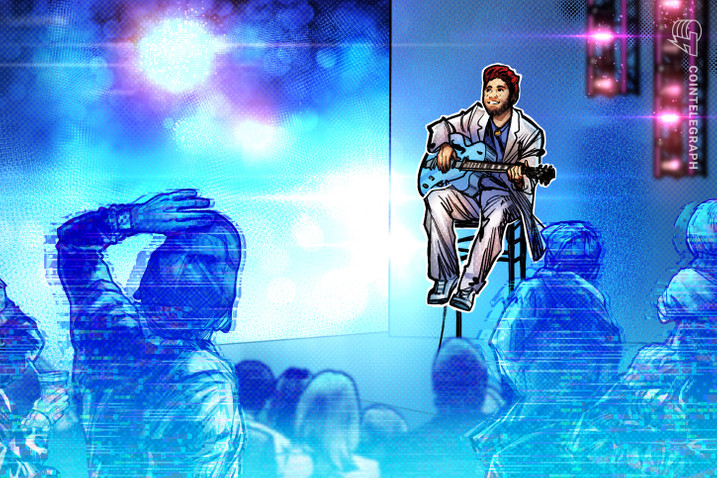As the second anniversary of the coronavirus pandemic begins to hit us, we don't know when our social lives will return to normal, or what the new normal will be. The impact on businesses such as nightclubs, music venues and musicians is immeasurable. For much of the past two years, crowded live events have been either impossible or more difficult and laborious, accelerating the pace of industry change already underway. That said, the music industry is increasingly adopting digital instruments and metaverses.
First proposed by science fiction author Neal Stephenson in his 1992 cyberpunk novel Avalanche, the Metaverse is described as a virtual world where individuals can interact in the form of avatars in the successor to the Internet to escape the reaction of the outside world. Utopia (disease rife). Sound familiar?
Thirty years after his prophecy, and amidst a global pandemic with ongoing restrictions and no end in sight, it's time to bring the musical metaverse to life. Given that live music revenues aren't expected to recover until 2023, one way to accelerate their recovery -- and provide a new technological alternative to traditional live events -- is to take more of our events into the virtual world.
There is constant debate about what the Metaverse should look like. On the one hand, there are the libertarians, crypto enthusiasts, and privacy-conscious folks who argue for a future in which the Metaverse is decentralized, without any individual or entity in control. Mark Zuckerberg, on the other hand, is trying to make the Metaverse the successor to Facebook, and a centralized version would be a natural choice. If all of us are going to spend more time there, the best option is obvious: one we all have a say in.
In a way, the Metaverse already exists. (Despite the ongoing COVID-19 pandemic, our world is not as dark as Stephenson paints it). Artists including Justin Bieber, DeadMau5 and The Weeknd have all held virtual concerts in recent months. And, while some of these events somewhat stretch the definition of the Metaverse—less like a VR-driven immersive experience and more like a 2020s version of the Habbo Hotel—it's clear that our appetite for live music The key ingredients for a fundamental shift in perception exist.
This prospect is especially exciting for smaller events. As any promoter or junior musician will tell you, touring is a necessity for any musician looking to make art a career, but it's also a time-consuming and expensive operation. A minimal-cost Metaverse "tour" (or series of performances by artists catering to different time zones) would remove barriers to performing live, not just for fans but for artists as well.
If your show is small enough that only a few large population centers can accommodate enough fans for a live show to be worthwhile, then the concept of a virtual show - where fans from all over the world can come together regardless of geography — is an exciting possibility. This is where niche fan groups and eccentric communities of music lovers will really win.
Planning Events in the Metaverse
Clearly, there are many ways in which a decentralized Metaverse can enhance the music industry. However, another blockchain-based technology also deserves attention: decentralized autonomous organizations (DAOs). (DAOs are community-supported groups that function almost like a board. Only on this board, everyone gets a seat.
A DAO is the antithesis of a centralized organization like a record label or a promotional company, as all decisions are made collectively. Anyone can join the DAO by acquiring the tokens needed to have a voice.
Like other rising stars in the blockchain world, such as non-fungible tokens (NFTs), The DAO has started to make its mark on the music world. In October, PleasrDAO pooled its resources and purchased the only copy of an album by the legendary hip-hop band Wu-Tang Clan. Once Upon a Time in Shaolin was deemed so valuable that 74 PleasrDAO members collectively raised $4 million to purchase it and then mint ownership as an NFT. However, their applications go far beyond this.
In the context of the live music business, DAOs are almost as exciting as the concept of the Metaverse itself, and even more alluring when you put the two together. For example, a music-focused DAO could buy concert tickets in bulk, fund and plan events such as concerts and music festivals, including in the digital space, and buy investable goods like art and musical instruments, and even As a fan-owned record label and promotion agency.
The aforementioned eccentric communities—those who gather around niche musical genres and the artists who innovate those genres—will gain the most from this new type of fan community.
Isn't that something we can encourage and create? A world where weirdness, beauty and live performances you've never seen before? At the turn of the century, when music first became a staple of our entertainment culture, the Internet had a huge impact on music. Web 2.0 has accelerated this diversification and democratization. All that Web3 and the Metaverse can do is get the job done and create a live music culture where the possibilities have never been more exciting and open. Most importantly, this could be a future that no one has control over. We all can.
Cointelegraph Chinese is a blockchain news information platform, and the information provided only represents the author's personal opinion, has nothing to do with the position of the Cointelegraph Chinese platform, and does not constitute any investment and financial advice. Readers are requested to establish correct currency concepts and investment concepts, and earnestly raise risk awareness.
 Alex
Alex
 Alex
Alex Alex
Alex Anais
Anais Miyuki
Miyuki Weiliang
Weiliang Catherine
Catherine Kikyo
Kikyo Anais
Anais Catherine
Catherine Joy
Joy